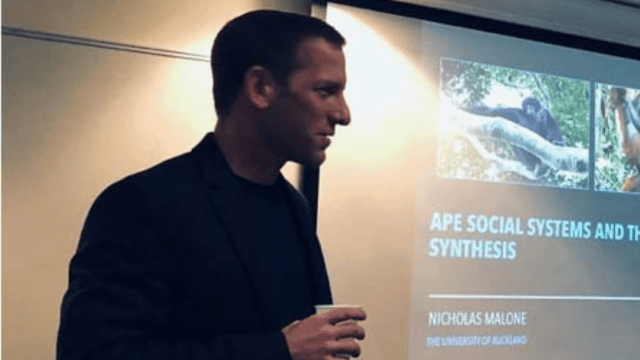
Facilitating co-existence, defined here as sustainable sympatry, between humans and alloprimates requires careful thought and attention to an array of realities - from the material/ecological to the social/perceptual. Anthropology, sometimes seen to be at the nexus for tensions between interpretive and explanatory approaches, has much to offer contemporary primatological practice; and perhaps vice versa. Drawing upon experiences in primate research and conservation, this talk aims to re-conceptualise the human-ape interface, including the role of primatologists, in a time of increasing ecological precarity.
Dr Nicholas Malone is an Associate Professor of Anthropology at the University of Auckland, New Zealand. Born in Chicago and educated in the USA (with a PhD from the University of Oregon), Nicholas moved to Aotearoa New Zealand in 2010 to take-up a lectureship in biological anthropology. Since that time, he has continued to study primates (and particularly apes) across a spectrum of anthropogenically influenced contexts. Nicholas Malone situates the study of primates within the broader contexts of anthropology, history and research ethics. His writing is informed by fieldwork in Indonesia and the Democratic Republic of the Congo, as well as by research with captive apes in North America and Australasia. His recent book The Dialectical Primatologist (Routledge 2022) exploresthe past, present and future of life in the hominoid niche.
Location
Speakers
- Dr Nicholas malone, university of Auckland
Event Series
Contact
- Stacey Ward
File attachments
| Attachment | Size |
|---|---|
| Seminar_Nicholas_Malone.pdf(114.83 KB) | 114.83 KB |